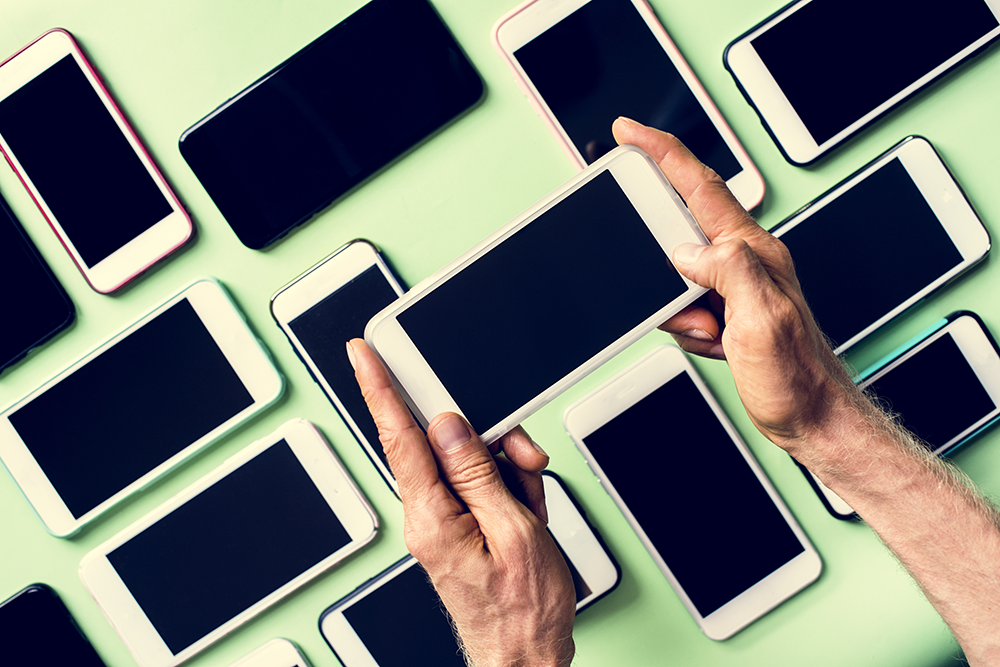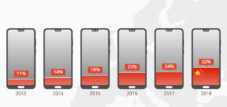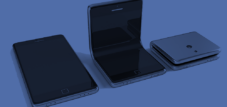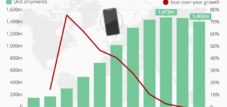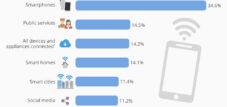Haben die Smartphone Hersteller den Kontakt zur Realität verloren? – Have Smartphone Makers Lost Touch With Reality?
Sprachauswahl 📢
Veröffentlicht am: 1. März 2019 / Update vom: 1. März 2019 – Verfasser: Konrad Wolfenstein
Als Apple im Herbst 2017 das 999 US-Dollar teure iPhone X herausbrachte, dachten viele Leute, dass das für seine Premium-Preise berühmte Unternehmen es endgültig übertrieben hatte. Auf keinen Fall würde jemand mit klarem Verstand so viel Geld für ein Smartphone ausgeben. Und doch sind wir hier, anderthalb Jahre später und andere Smartphone-Marken sind dem Beispiel von Apple gefolgt und haben Preisschilder von über 1.000 Dollar zur neuen Norm für Spitzengeräte gemacht.
Der Mobile World Congress in dieser Woche hat uns jedoch zu einer neuen Stufe der Preisesteigerung bei Smartphones geführt, da sowohl Huawei als auch Samsung Falt-Handys ankündigen, die fast 2.000 US-Dollar oder sogar mehr kosten werden. Während flexible Bildschirme sicherlich eine der beeindruckenderen Innovationen sind, die die Smartphone-Industrie in letzter Zeit zu bieten hatte, deuten die Preise der ersten flexiblen Smartphones darauf hin, dass die Industrie den Kontakt zur Realität verloren hat.
Laut einer aktuellen Umfrage von USA Today ist die überwiegende Mehrheit der Smartphone-Nutzer in den USA nicht bereit, mehr als 750 Dollar für ein neues Gerät auszugeben. Nur 3 Prozent der Befragten erklärten sich bereit, mehr als 1.000 Dollar für ein neues Telefon auszugeben. Preise von 2.000 Dollar oder mehr sind zu absurd, um es überhaupt in die Umfrage zu schaffen.
When Apple released the $999 iPhone X in the fall of 2017, many people thought that the company famous for its premium pricing had finally overdone it. No way anyone in their right mind would spend that much money on a smartphone. And yet here we are, one and a half years later and other smartphone brands have followed Apple’s lead, making price tags in excess of $1,000 the new norm for top-of-the-line devices.
This week’s Mobile World Congress has brought us to a new level of smartphone price escalation, however, with both Huawei and Samsung announcing foldable phones that will cost close to or even more than $2,000. While flexible screens certainly are one of the more impressive innovations the smartphone industry has had to offer lately, the prices of the first flexible smartphones suggest that the industry has lost touch with reality.
According to a recent USA Today poll, the vast majority of smartphone users in the U.S. aren’t willing to spend more than $750 on a new device. Only 3 percent of the respondents expressed their willingness to spend more than $1,000 on a new phone, with prices of $2,000 or more too absurd to even make it into the survey.




